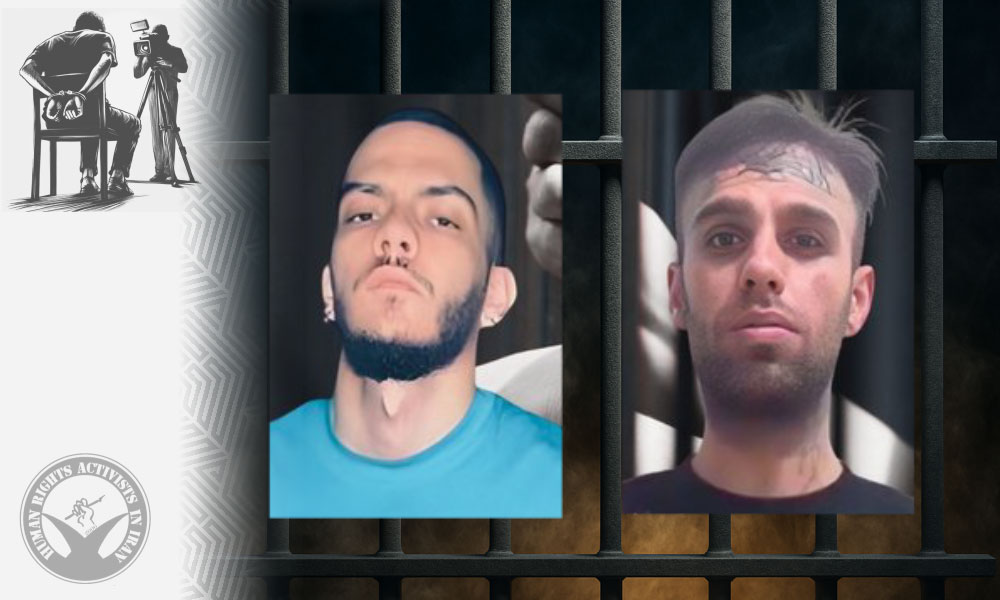HRANA – Danial Faraji and Amir Ardalān Aghashahi, two rap artists known by their stage names “Meshki” and “Dalu,” have been arrested by the Security Police. Videos of their forced confessions, recorded under unclear circumstances, have been disseminated on their personal social media accounts as well as by state-run media outlets.
According to information obtained by HRANA, the news agency of Human Rights Activists in Iran, the two rappers were detained by security forces. Following their arrest, state media published videos of their forced confessions, which were also shared on the artists’ personal pages under unknown conditions. In one of these videos, Faraji expresses remorse for what he describes as “social and political activities through rap music and insulting the Supreme Leader.”
In a separate video, Aghashahi expresses regret for “displaying cold weapons” and “using profanity in his music videos.”
State media have accused the two of “producing and distributing unconventional and controversial works,” identifying the arresting authority as the Security Police. Official reports have not provided details regarding the time of arrest or location of detention.
It is worth noting that prior to the release of the forced confession videos, Danial Faraji consistently appeared wearing a black mask in his music videos, and no images of his real face had previously been made public.
In 2024, HRANA documented 28 cases of forced confessions extracted from prisoners. The practice of obtaining and broadcasting coerced confessions from political dissidents and protesters by the Iranian regime’s security apparatus is as old as the regime itself. In 2022, amid nationwide protests, the number of such forced confessions surged to 391 cases.
HRANA emphasizes that the recording and dissemination of forced confessions violate human dignity and fundamental rights. Furthermore, under the law, every individual is presumed innocent until proven guilty in a court of law. Any punitive measures taken prior to a final conviction constitute a violation of civil and human rights.



